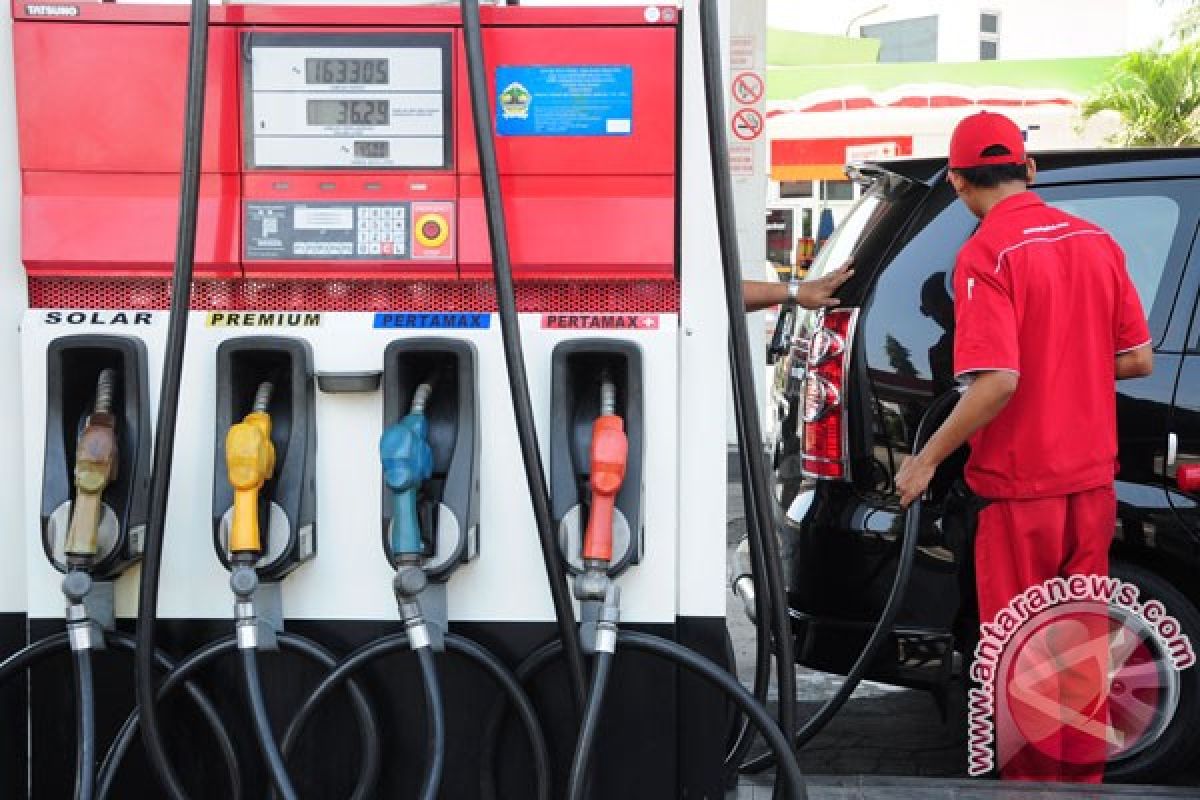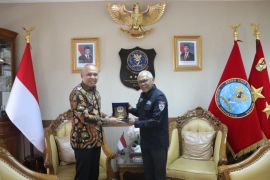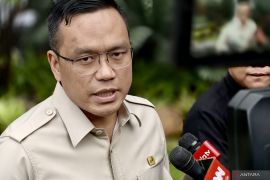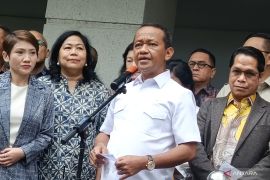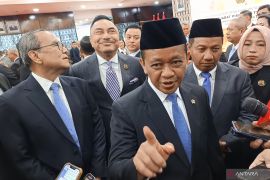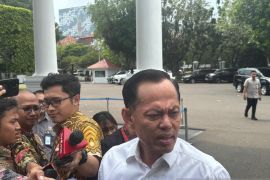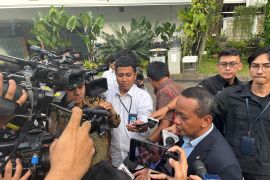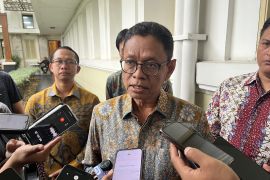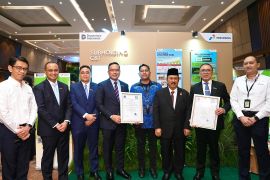"We are trying to convince the DPR to support the proposal to cut fuel subsidies."Jakarta (ANTARA News) - The Indonesian government is seeking a gradual rise in the prices of subsidized fuels as of 2013, when fuel consumption quotas are to increase to 46.01 million kiloliters from the current 43.5 million kiloliters.
At a plenary session held at the parliament building here early this week, the House of Representatives (DPR) and the government agreed to set state spending on subsidies for 2013 at Rp317.2 trillion, consisting of Rp274.7 trillion in energy subsidies and Rp42.5 trillion in non-energy subsidies.
The energy subsidy consists of a subsidy for fuel oils, LPG in 3-kg cylinders, and LGV amounting to Rp193.8 trillion and electricity subsidies of Rp80.9 trillion.
Many believe the low prices of subsidized fuels have put pressure on the competitiveness of the Indonesian economy. A rise in the prices of subsidized fuels is a key to solving a budget deficit due, in part, to rising fuel subsidies.
Even the Indonesian Association of Motor Vehicle Producers (Gaikindo) has expressed no objection to the government`s plan to scrap fuel subsidies, which will raise the price of subsidized premium gasoline.
"The government`s step to scrap fuel subsidies in order to save the state budget is on the right track. But the policy must not be applied together with a power tariff hike," Gaikindo Chairman III Johnny Darmawan said.
Domestic fuel consumption has shown an upward trend over the past few years, as the country is pursuing high economic growth.
Further, Downstream Oil and Gas Regulator (BPH Migas) has predicted that subsidized fuel consumption will reach 45.373 million kiloliters by the end of this year, outstripping the quota of 44.04 million set in the revised 2012 state budget.
In the first nine months of this year, subsidized fuel consumption reached 32.906 million kiloliters, accounting for 75 percent of the quota, the agency noted.
The agency has projected fuel consumption to reach 3.882 million kiloliters in October, 3.931 million kiloliters in November and 4.221 million kiloliters in December this year.
The subsidized fuel quota of 44.04 million kiloliters in the revised 2012 state budget is 4.04 million kiloliters higher than projected earlier at 40 million kiloliters.
Vice Minister of Energy and Mineral Resources Rudi Rubiandini said recently that the government is proposing to the DPR to raise the prices of subsidized fuel oil by Rp500 per liter every three months in 2013.
"We are trying to convince the DPR to support the proposal to cut fuel subsidies in the draft 2013 state budget," he said, after attending the Expert Panel Discussion of Nahdlatul Ulama Scholar Association (ISNU).
Rubiandini noted that the government is proposing a cut in fuel subsidies by raising the price of subsidized premium gasoline every three months in order to maintain the purchasing power of low-income people.
"If the premium gasoline price is simultaneously increased, we are worried the poor will not be prepared for it," he said.
According to Rubiandini, the gradual reduction of fuel subsidies would help slow budgetary losses since the budget is much burdened by energy subsidies this year.
In 2012, the government must raise the budget for premium gasoline to Rp216.8 trillion from Rp79.4 trillion, after it dropped a plan to raise the prices of subsidized fuels or limit the use of subsidized fuels early this year.
The higher price of Indonesian crude oil, which in the January-September 2012 period reached US$114.1 per barrel compared to US$105 per barrel assumed in the revised 2012 state budget, was one of the factors ballooning the fuel subsidy.
Bambang Brodjonegoro, head of the fiscal policy agency at the finance ministry, said the cancellation of the premium price increases had caused premium gasoline consumption to exceed its quota.
According to Brodjonegoro, the quota of subsidized gasoline for 2012 should be increased by 3.5 million liters, as the previous quota of 40 million liters was not enough to meet demand.
Rubiandini added that it is important for the government to cut gasoline subsidies and the fund could be used for infrastructure development to stimulate economic growth.
Under the 2013 State Budget Law, the government is allowed to adjust subsidy expenditures in case of deviations in macroeconomic assumptions or changes in global fuel prices.
Brodjonegoro said the inclusion of Article 8 in the 2013 State Budget Law had authorized the government to reduce subsidy burdens on the state.
"The article gives the government the flexibility to decide whether to increase the quota for subsidized fuel or ramp up subsidy expenditures when dealing with a weakening rupiah exchange rate or an increase in the Indonesia Crude Price (ICP)," he explained.
The government may choose to adjust the subsidized fuel price if there is a deviation in macroeconomic assumptions which affects subsidy expenditure in the current budget year, Brodjonegoro noted. ***2***
(S012/INE/H-YH)
(T.SYS/A/KR-BSR/A/H-YH) 27-10-2012 20:28:06
Reporter: by Suharto
Editor: Priyambodo RH
Copyright © ANTARA 2012
